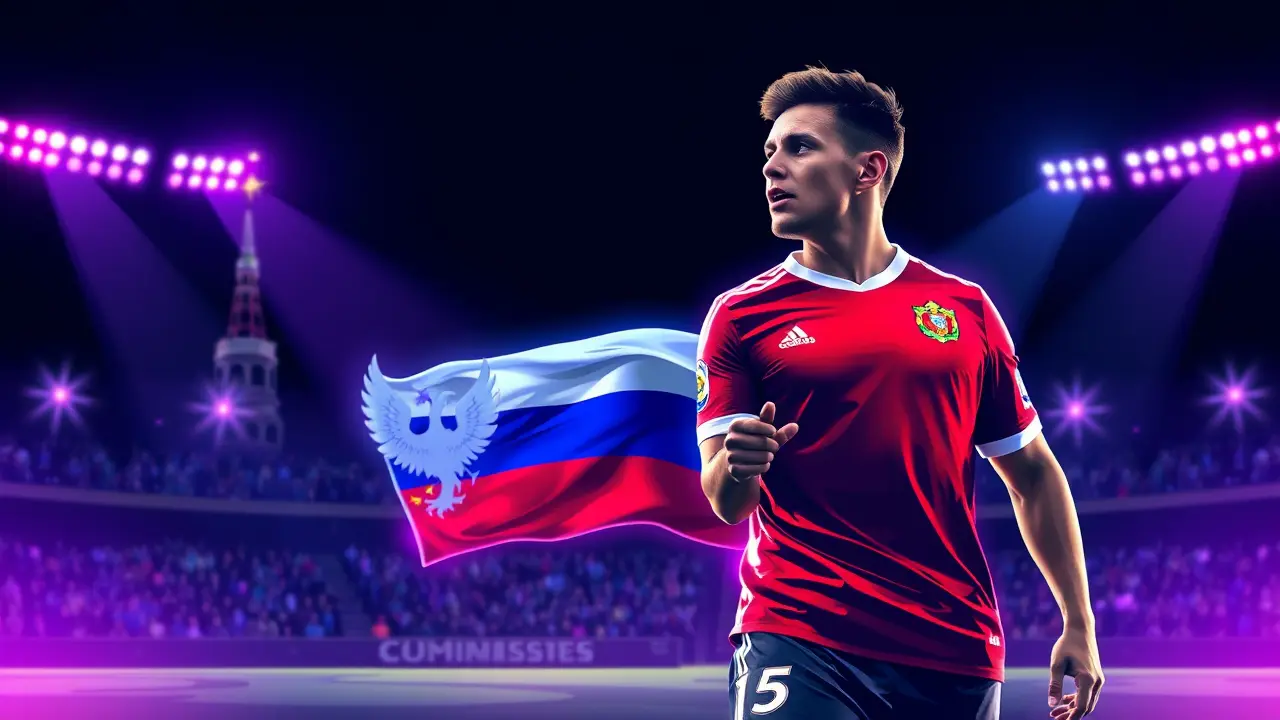CSKA director on Russian passport for Moises.
The corridors of power at CSKA Moscow are once again buzzing with the intricate dance of football politics and national allegiance, as the club's director openly discussed the tantalizing possibility of Brazilian defender Moises acquiring a Russian passport. This isn't merely a routine administrative matter; it's a strategic gambit with profound implications for both the club's tactical lineup and the very fabric of international football, echoing the complex legacy of players like Douglas Santos, whose own citizenship saga serves as a stark, cautionary tale.The director’s candid admission—'We do not rule out such a possibility'—is a masterstroke of public negotiation, a statement loaded with both promise and precondition that immediately draws parallels to the great chess matches of sport, where every move is calculated for its long-term consequence. The core of the issue, as articulated with refreshing clarity, is a matter of philosophical principle versus pragmatic necessity: the granting of citizenship should not be a mere loophole to circumvent the foreign player limit in the Russian Premier League (RPL), a tactical shortcut that has been exploited before, but must be a genuine commitment to the national cause, a pledge to don the jersey of the Russian national team and elevate its fortunes on the world stage.The ghost of Douglas Santos looms large in this conversation, a specter of a strategy backfiring. Here was a player, a stalwart for Zenit, who seamlessly integrated into Russian life, obtained the coveted passport, only to later fulfill a childhood dream by debuting for the mighty Brazilian national team in September.This development, while a personal triumph for Santos, instantly re-categorized him as a foreign player within the RPL, nullifying the very competitive advantage his citizenship was intended to provide his club. The CSKA director’s pointed reference—'We do not want to repeat the Douglas Santos story'—is a declaration that they have learned from this precedent; they are seeking a player not just of skill, but of unwavering commitment, a figure who sees the Russian shirt not as a consolation prize but as a ultimate honor.This stance elevates the discussion from mere club administration to a broader debate about national identity in modern football, a world increasingly blurred by globalization. Is a passport simply a document of convenience, a key to unlocking a slot on a team sheet? Or is it a symbol of belonging, a covenant with a nation's sporting aspirations? The club’s position suggests a desire for the latter, a rare and almost romantic stand in an era often dominated by cold, hard logistics.The revelation that preliminary discussions have already been held with Moises himself adds a compelling human dimension to the narrative. The defender, a linchpin in CSKA's backline, has 'taken a pause for thought,' a phrase that speaks volumes.This is not a decision to be taken lightly. For a Brazilian footballer, the samba-yellow jersey of the Seleção represents the pinnacle of achievement, a dream nurtured on the futsal courts and dusty pitches of his homeland.To consciously set aside that dream in favor of representing Russia is a profound life choice, weighing club loyalty and immediate playing time against the intangible glory of potentially representing one's birth nation on a global stage. It’s a decision that involves family, agents, and a deep introspection about one's career trajectory and legacy, a calculus far more complex than any training-ground tactic.The director’s concluding remark—'So we are not pushing it'—is a masterclass in strategic patience, indicating a willingness to let this process mature organically rather than force a resolution that could lead to future regret or resentment. This entire situation must be viewed through the wider lens of Russian football's ongoing evolution and its relationship with foreign talent.The league's legionnaire limit is a policy designed to foster domestic growth, but it inevitably creates a high-stakes environment where clubs perpetually seek an edge. The 'naturalization' of high-quality foreign players has become a potent weapon in this arsenal, but as the Santos case proved, it is a weapon that can misfire.CSKA’s public stance, therefore, can be interpreted as a signal to the entire football ecosystem: they are aiming for a higher standard. They are not just building a team for the next championship; they are, in their own way, attempting to build a core for the national team, blurring the lines between club and country in a manner reminiscent of how Barcelona's La Masia academy has historically fed the Spanish national team.It raises fascinating questions about the future of international football. As player mobility increases and dual nationalities become more common, will we see more clubs acting as de facto gatekeepers for national team eligibility? The potential consequences are multifaceted.For Moises, a positive decision could cement his status as a CSKA legend, a player who sacrificed a chance with Brazil to become a cornerstone for both his club and his adopted nation, a story of loyalty that would resonate for generations. For the Russian national team, it would mean acquiring a seasoned, top-tier defender, instantly bolstering a squad that is perpetually in need of world-class talent to compete at Euros and World Cups.For CSKA, it’s the ultimate two-for-one deal: securing a key player’s long-term future while simultaneously freeing up a valuable foreign player slot to recruit another star, a move that could create a domino effect across the RPL transfer market. However, the risks are equally significant.Should Moises eventually follow the Santos path, the club would face not only a public relations setback but a tangible sporting disadvantage. The delicate dance continues, a negotiation played out in the media as much as in the boardroom, a story that encapsulates the beautiful game's constant interplay between commerce, country, and the human heart.
It’s quiet here...Start the conversation by leaving the first comment.
© 2025 Outpoll Service LTD. All rights reserved.
